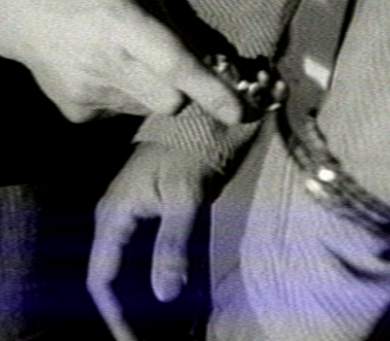Want to know what’s wrong with the War on Drugs?
Criminal Justice, Racial Equity — By Restore Fairness on March 11, 2010 at 06:12By Madhuri Mohindar and Ishita Srivastava
It’s the first time that 1 in every 100 adult Americans is in prison, proof of an exploding prison system that our country can ill afford and a movement away from rehabilitation programs. Even more disturbing are the racial disparities within the prison system. More than 60% of people in prison are racial and ethnic minorities which means that 1 in every 36 Hispanic adults and 1 in every 15 black adults are in prison. How did this all happen? A change in laws and policies over the past decade have convicted more offenders, including non violent offenders, and put them away for increasingly lengthy sentences. For many, it is a system that is not providing the same returns in public safety in relation to this growth, and a rapid movement to change unfair laws has seen growing progress.
The 1980’s saw the “War on Drugs” launched in a big way. It was also the time for many federal policies that disadvantaged communities of color. One example: sentences for crack cocaine offenses (the kind found in poor Black communities) that were treated a 100 times more severely than powder cocaine offenses (the kind that dominates White communities). According to the Drug Policy Alliance Network,
Reform advocates say no other single federal policy is more responsible for gross racial disparities in the federal criminal justice system than the crack/powder sentencing disparity. Even though two-thirds of crack cocaine users are white, more than 80 percent of those convicted in federal court for crack cocaine offenses are African American.
The differences in sentencing were based on a myth that crack cocaine was more dangerous than powder cocaine and that it was instantly addictive and caused violent behavior, all of which has been disproved. What it’s actually led to is a costly system that focuses on low-level offenders and users instead of dealers and suppliers, imprisoning addicts that could benefit from rehabilitation programs. One analysis by Senator Richard Durbin, a Democrat of Illinois, estimates that an increased focus on community programs and an end to the sentencing disparity could lead to a savings of half-a-billion dollars in prison costs.
With mounting pressure on Congress to do away with legislation that has devastated communities, we are at an opportune moment to instill justice back into the system. While The House Judiciary Committee has already passed a bill that ends the sentencing disparity between crack and powder cocaine, the Senate Judiciary Committee will likely vote on a bill soon. Some Senators want to reduce the sentencing disparity instead of eliminating it but this watered-down compromise will do little to restore fairness. Let the Senators hear your voice.
Tags: African American, Black, Breakthrough, Color of Change, crack/powder cocaine, criminal justice system, Drug Policy Alliance Network, House Judiciary Committee, Mass Incarceration, New York Times, organized crime, Pew Center on the States, prison, racial disparity, Restore Fairness, Senate Judiciary Committee, Senator Richard Durbin, sentencing disparity, The Sentencing Project, War on DrugsAuthor: Restore Fairness (3 Articles)

The Restore Fairness campaign is calling on the U.S. government to restore due process and fairness to our immigration system. Since the Declaration of Independence, America has striven to uphold fairness and due process. But today, a broken immigration system denies basic human rights and due process to people who live here. In the aftermath of 9-11, immigrants have borne the brunt of harsh policies, with the U.S. government allowing raids and arrests without warrants, holding thousands in inhumane detention conditions, and deporting people without a fair trial. This campaign site provides you with tools for action, so you can join us in building broad support for fair immigration policies that respect due process. The site includes a powerful documentary produced by Breakthrough in association with 26 key partners featuring leading voices on the issue and compelling personal testimonies, a video channel with additional immigration stories, a screening guide that aims to foster dialogue, an action hub, a blog for voicing opinion, tools for contributing and sharing content, and online resources to keep you up on the issue. With these, we hope to empower and encourage you to become an agent of change in your community. With your help, we can mobilize members of organizations, groups and individuals to demand that our government uphold the human rights of all people within the immigration system. We need you to take action now. Together, we can stand up for American values of due process and fairness. Become an ally of the movement today.



 Share This
Share This Tweet This
Tweet This Digg This
Digg This Save to delicious
Save to delicious Stumble it
Stumble it





 News With Nezua | El Arpaio Alacrán
News With Nezua | El Arpaio Alacrán Russian ice dancers slip on Aboriginal 'tribute'
Russian ice dancers slip on Aboriginal 'tribute' A Regrettable Misunderstanding
A Regrettable Misunderstanding







